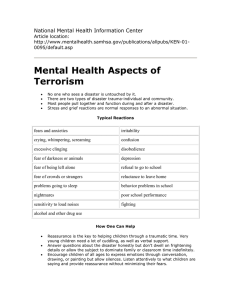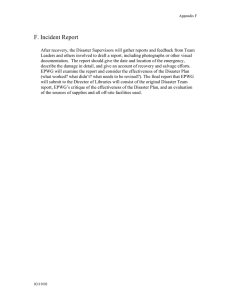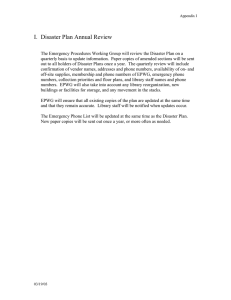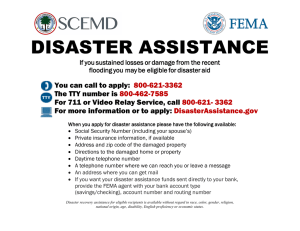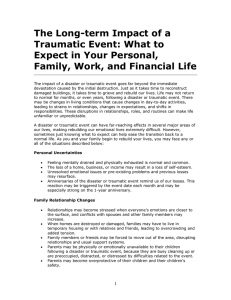Mental Health Aspects of Terrorism
advertisement
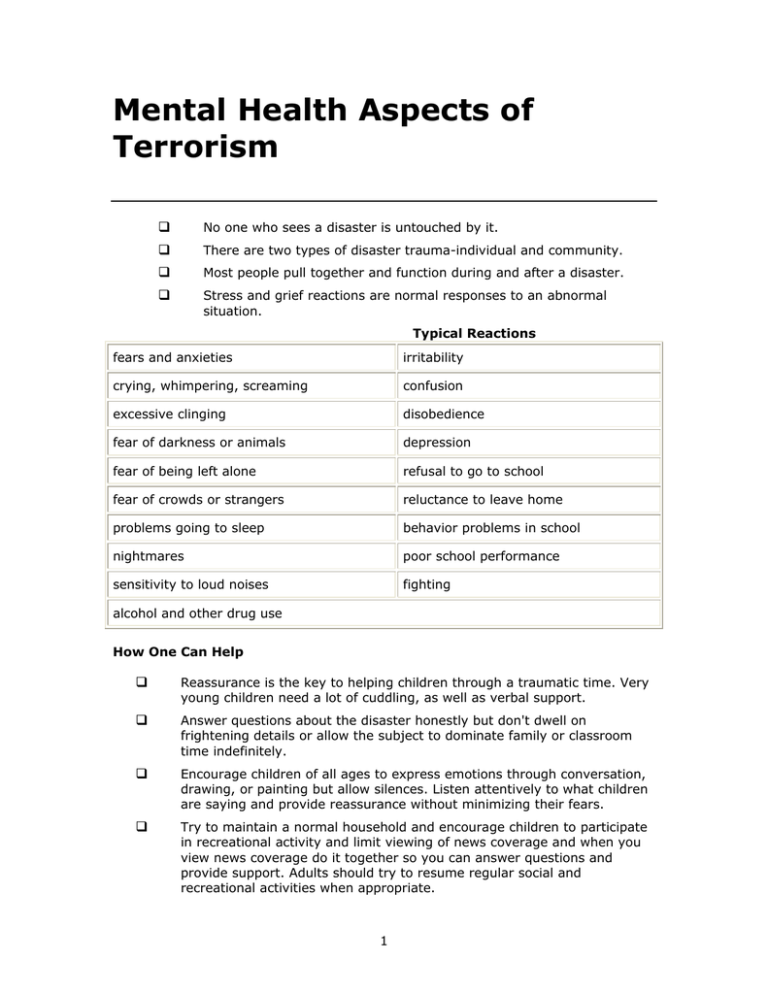
Mental Health Aspects of Terrorism No one who sees a disaster is untouched by it. There are two types of disaster trauma-individual and community. Most people pull together and function during and after a disaster. Stress and grief reactions are normal responses to an abnormal situation. Typical Reactions fears and anxieties irritability crying, whimpering, screaming confusion excessive clinging disobedience fear of darkness or animals depression fear of being left alone refusal to go to school fear of crowds or strangers reluctance to leave home problems going to sleep behavior problems in school nightmares poor school performance sensitivity to loud noises fighting alcohol and other drug use How One Can Help Reassurance is the key to helping children through a traumatic time. Very young children need a lot of cuddling, as well as verbal support. Answer questions about the disaster honestly but don't dwell on frightening details or allow the subject to dominate family or classroom time indefinitely. Encourage children of all ages to express emotions through conversation, drawing, or painting but allow silences. Listen attentively to what children are saying and provide reassurance without minimizing their fears. Try to maintain a normal household and encourage children to participate in recreational activity and limit viewing of news coverage and when you view news coverage do it together so you can answer questions and provide support. Adults should try to resume regular social and recreational activities when appropriate. 1 Finally, acknowledge that you may have reactions associated with the traumatic event, and take steps to promote your own physical and emotional healing. In helping family, friends and co-workers in the aftermath of a disaster, individuals often benefit from talking about the experience. Some tips "Do's and Don'ts" for listening are: Do say: These are normal reactions to a disaster. It is understandable that you feel this way. You are not going crazy. It wasn't your fault, you did the best you could. Things may never be the same, but they will get better, and you will feel better. Don't say: It could have been worse. You can always get another pet/car/house. It's best if you just stay busy. I know just how you feel. You need to get on with your life. When To Refer for Mental Health Services The following reactions, behaviors, and symptoms may signal a need to consult with the appropriate professional for further assistance. Disorientation - dazed, memory loss, inability to give date or time, state where he or she is, recall events of the past 24 hours or understand what is happening Mental Illness - hearing voices, seeing visions, delusional thinking, excessive preoccupation with an idea or thought, pronounced pressure of speech (e.g., talking rapidly with limited content continuity) Inability to care for self - not eating, bathing or changing clothes, inability to manage activities of daily living Suicidal or homicidal thoughts or plans Problematic use of alcohol or drugs Domestic violence, child abuse or elder abuse KEN-01-0095 Updated 11/02 2
